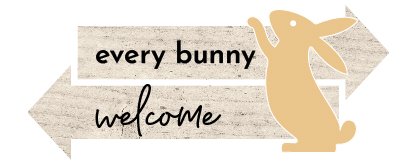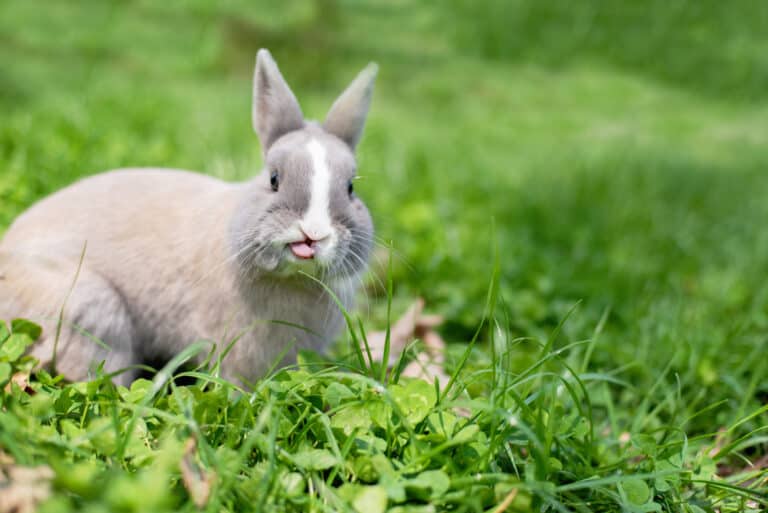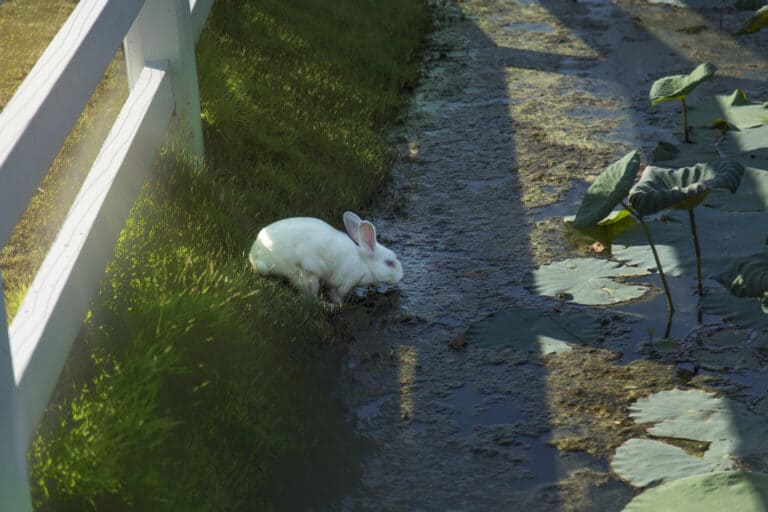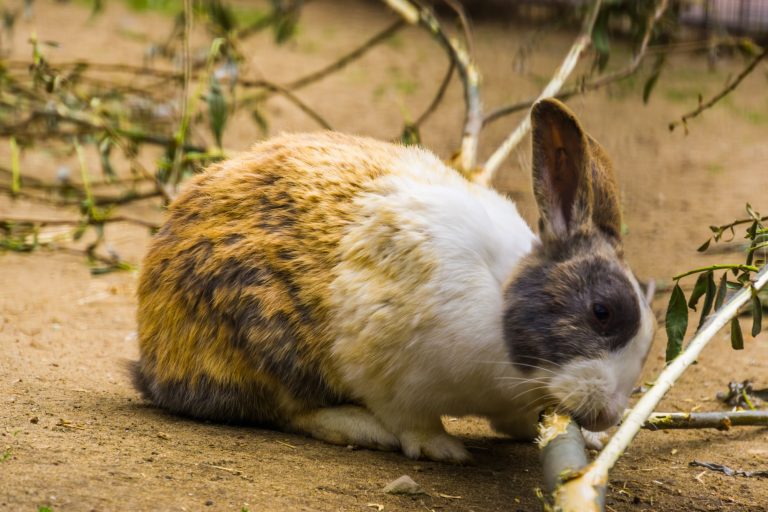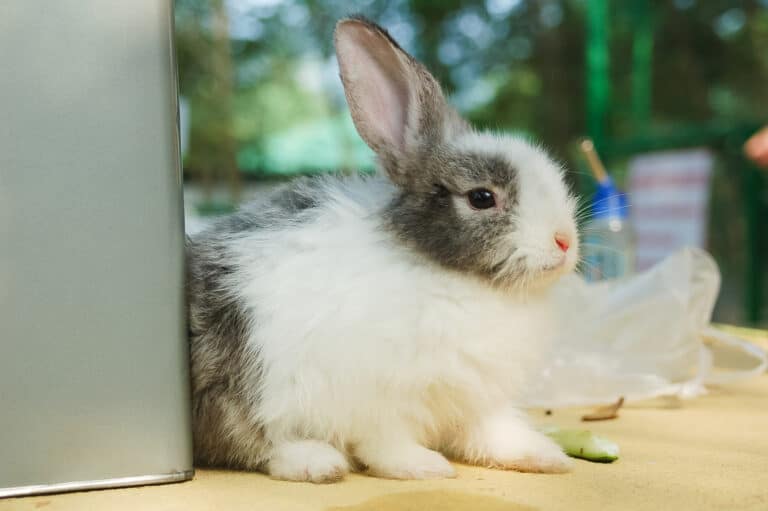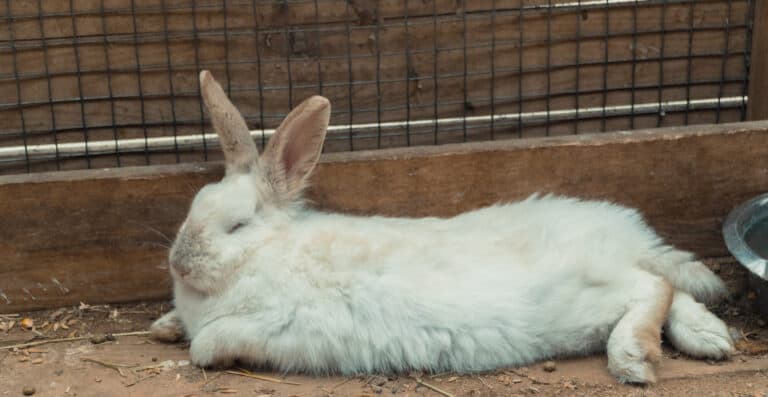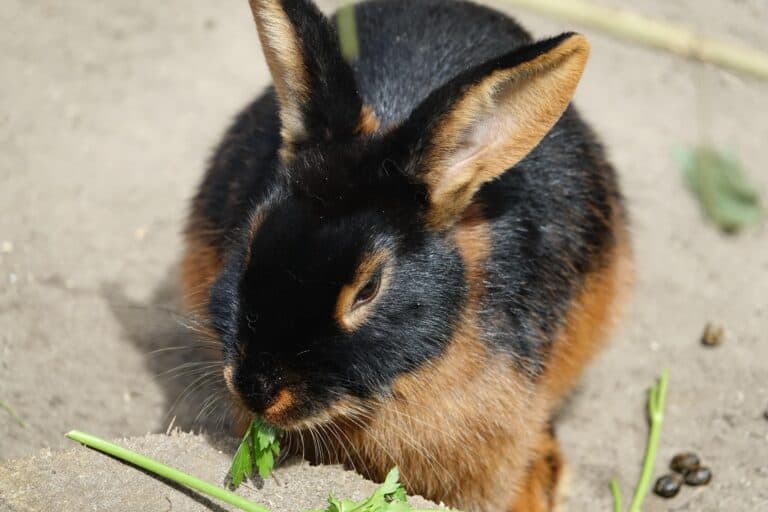The Bunny Nose: What the Wiggling, Twitching and Moving Means
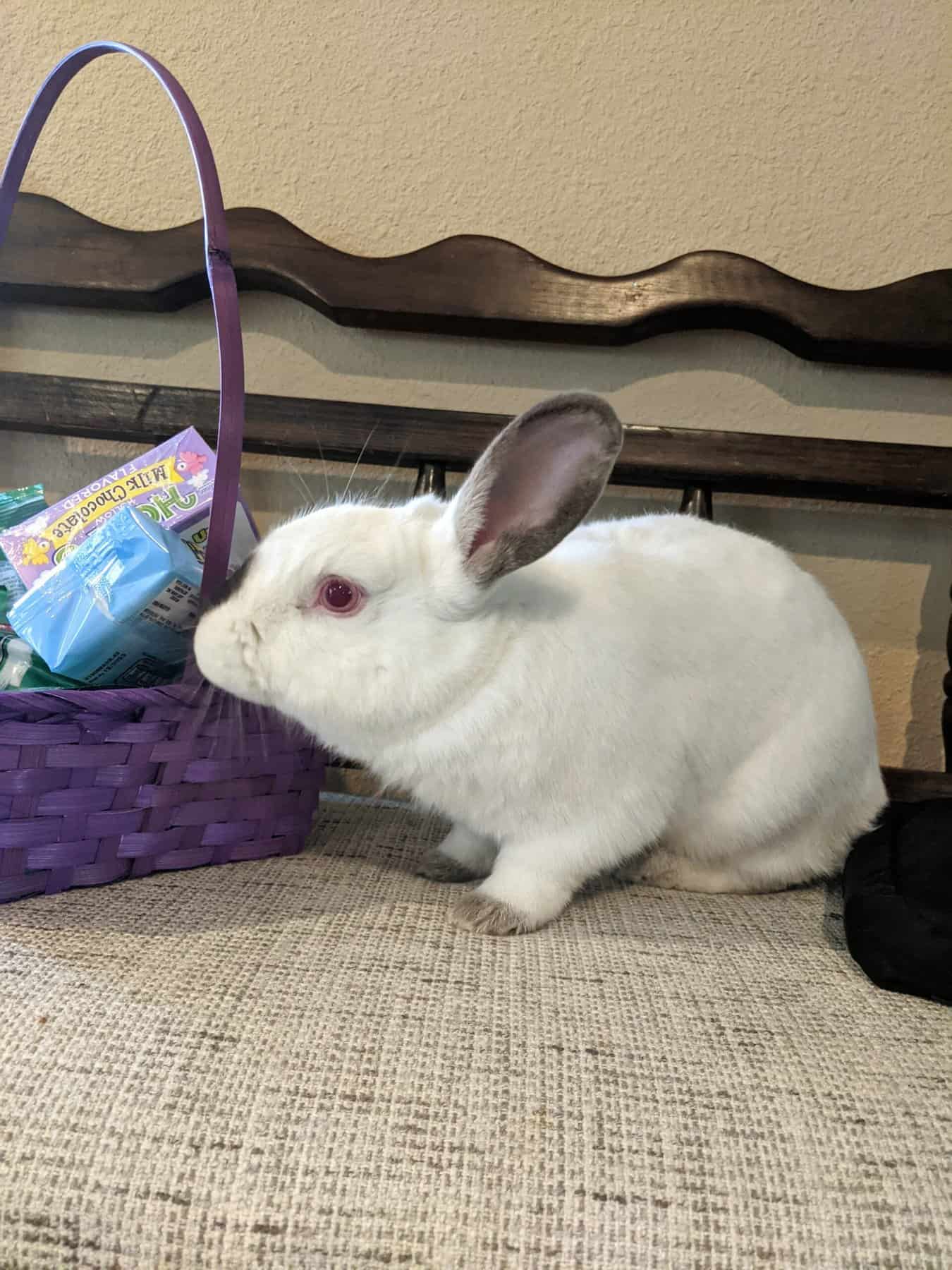
A bunny nose is one of the cutest things you’ll ever see. Bunnies wiggle and twitch their noses so often, but we bet you can’t help but stop and stare each time because they’re so adorable. Well, buns wiggle their sniffer not to look more endearing than they already are but also for other reasons. So if you’re one of those who’ve wondered about the bunny nose, and why rabbits twitch their nose, you’ve come to the right place. Let’s explore all about a rabbit nose.
Interesting Fact About a Bunny Nose
Rabbits have an exceptional sense of smell. Their noses have approximately 100 million scent-detecting cells (compared to humans, who have only about 5 to 6 million). No wonder they can sniff food, other rabbits, and animals up to 2 miles away.
When rabbits are trying to detect a smell, they move their nose up and down, an act known as “nose blinking.” It’s just like a nose wiggle, meaning the same motion, different name!
Why Do Rabbits Wiggle Their Nose?
All bunnies twitch their noses no matter the breed. Also, even though other animals wiggle their sniffers, only buns do it frequently. It’s how they interact with their environment and communicate how they feel. As such, the act will give you a clue regarding your pet’s physical and emotional well-being.
Types of Nose Wiggling
To fully understand why rabbits make this endearing gesture, we’ll have to differentiate between the types of nose twitching. These are the slow twitch and the fast one. The two would have different meanings.
The Fast Nose Twitch
A fast nose wiggle is usually associated with alertness or excitement. It’s also connected with how a rabbit feels about the environment.
The Slow Nose Wiggle
While a fast-twitching nose indicates heightened awareness, a slow nose wiggle happens when rabbits don’t perceive any danger and want to rest or relax.
Now that we know that the speed of the wiggle can signify whether a rabbit feels calm or threatened, let’s discuss the various reasons why bunnies twitch their nose.
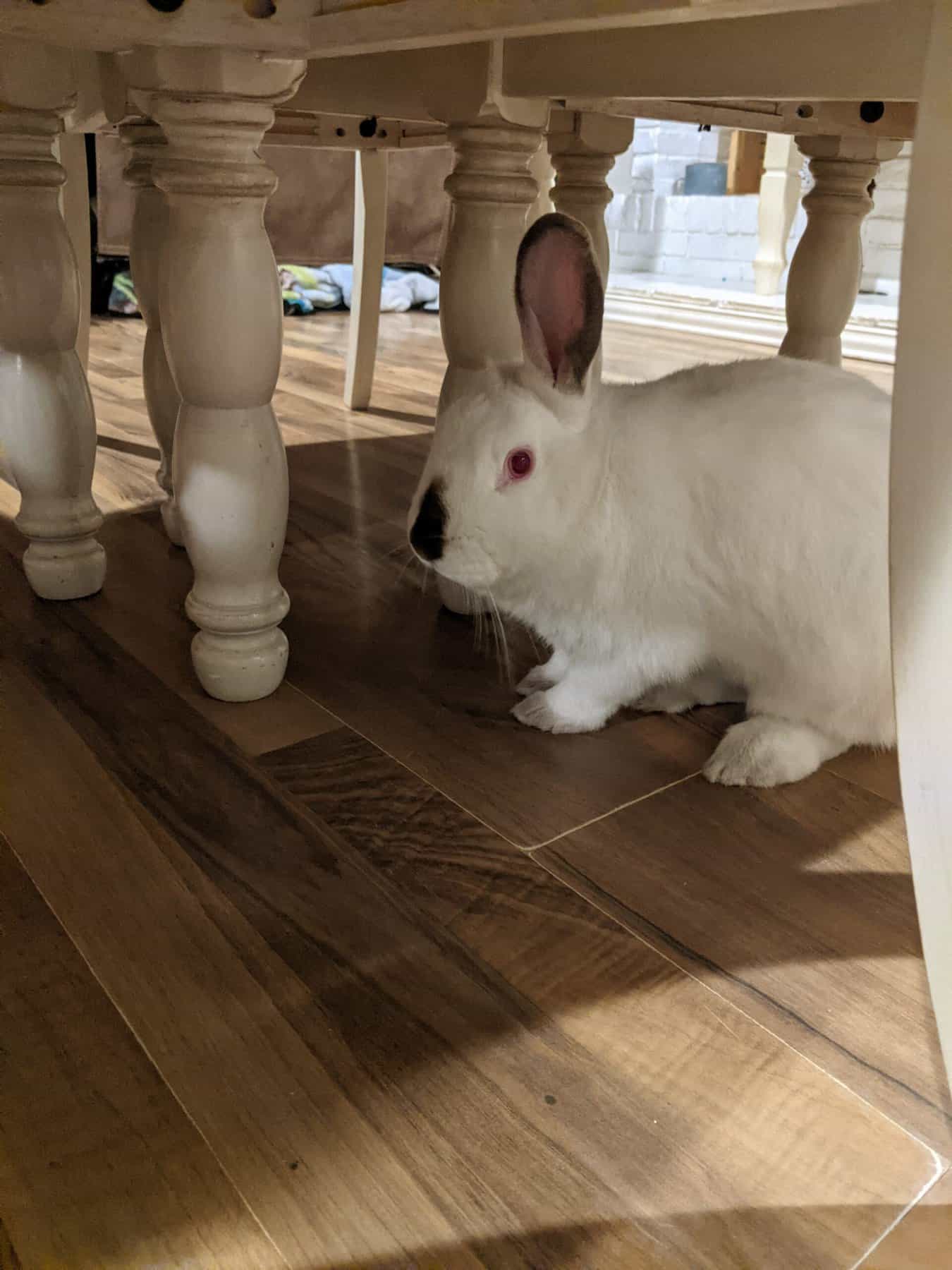
Reasons Behind Fast Nose Twitching
Because they’re prey animals, rabbits must constantly be aware of their surroundings. Their extraordinary sense of smell is one of Mother Nature’s gifts to the species to help them survive in the wild.
Wiggling their noses helps buns gather information about their environment, and the faster the twitch, the more data the nose captures. Thus, when they sense something’s afoot, that cute nose starts gyrating.
1. To Detect Predators
Bunnies have about 100 million olfactory receptors. These scent-detecting cells combine odor molecules to help them detect different smells, and they get stimulated by nose twitching. That’s why your pet will start wiggling his nose really fast when he catches a whiff of anything that screams “predator.”
The wiggling action enhances your furball’s already exceptional sense of smell, allowing him to gather more information and determine whether to flee or stay put.
2. To Regulate Body Temperature
Did you ever imagine that the cute nose wiggle can help your fur baby cool down during hot weather or keep warm when he feels cold? As your bun breathes, the nasal mucosa or the membrane in the nasal passage helps transfer heat from the air that he breathes in and out.
During cold days, this helps your pet retain heat; on hot summer days, it can prevent him from overheating.
3. Curiosity
Smelling something new can excite your rabbit, making him twitch his nose fast to gather as much information as possible. He naturally wants to know if the new scent isn’t coming from a predator or anything that could harm him.
4. Anxiety or Agitation
If something startled or frightened your bunny, his nose might stop twitching briefly. That’s akin to his heart skipping several beats. Expect a flurry of nose wiggling after that momentary freezing as he tries to collect sensory data about the noise or movement that scared him.
Reasons Behind Slow Nose Twitching
If a fast nose wiggle typically means that your bun is extra alert, a slow nose twitch often indicates that he’s calm and contented. Here are situations when you might see a slow sniffer wiggle.
1. When You’re Around
Did you notice how fast your pet’s nose twitched when you first got him and how that pace slowly slackened as he became familiar with you? Rabbits only slow down their nose twitching when they don’t detect any danger and want to relax.
The slow nose twitch may happen when you’re petting your bunny, giving him a massage, or when he feels safe enough to sleep. Of course, if you approach him with food, expect that nose to start wiggling at a fast clip as he anticipates getting a tasty morsel.
2. To Make Breathing Easier
Has your rabbit been running around and then flops down beside you? You’ll likely notice him wiggling his nose during that time.
Bunnies are obligate nasal breathers. This means they breathe primarily through their noses. They can’t pant, so they twitch their noses to make breathing easier as wiggling their nose helps them take in more air.
Does a Rabbit’s Nose Ever Stop Wiggling?
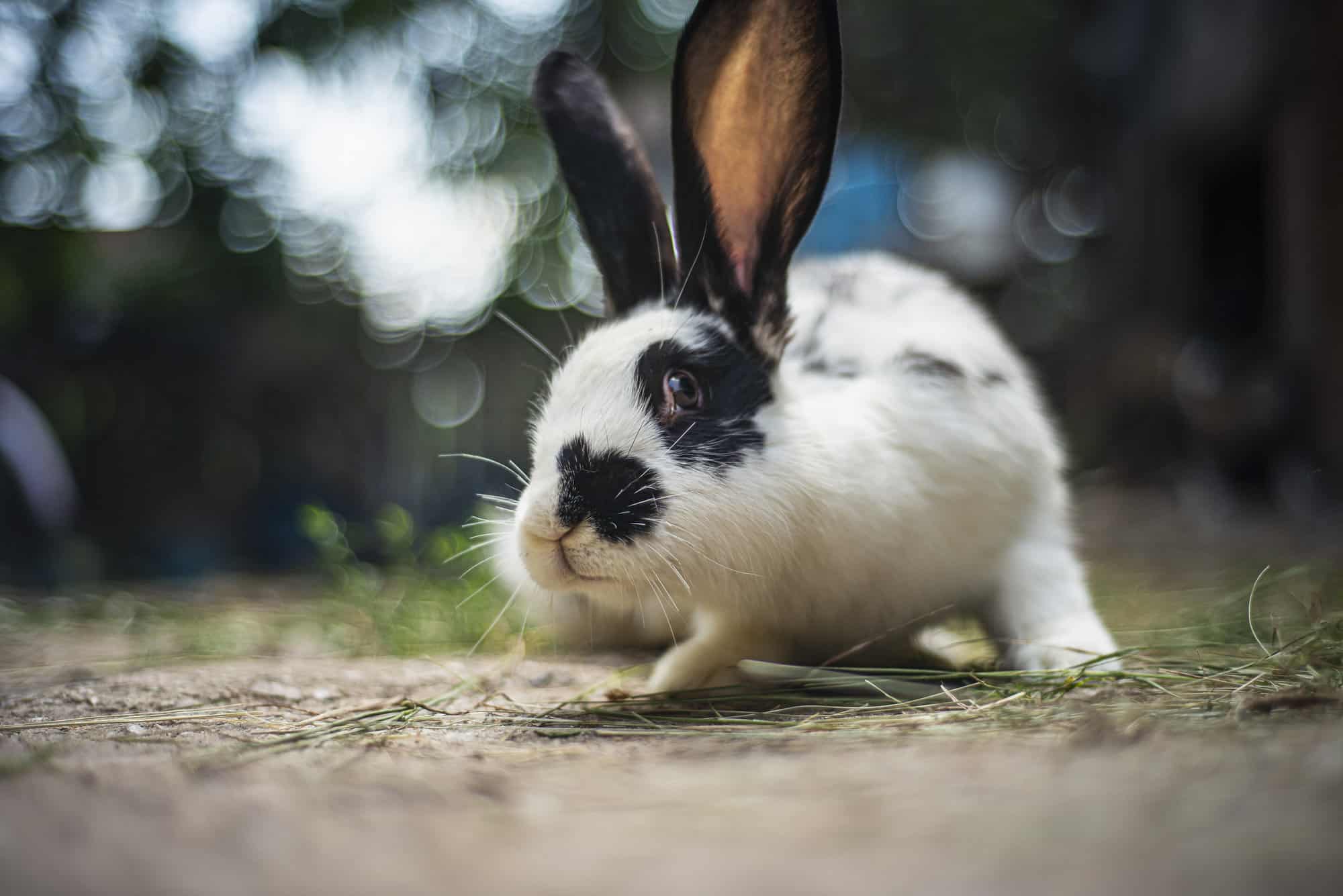
Don’t believe the myth that a rabbit isn’t breathing when the nose isn’t twitching. He doesn’t need to move his sniffer to take in air. So while your pet’s nose seems in perpetual motion, there’ll be occasions when it ceases moving.
Don’t worry. That’s normal, too. Here are some instances when your bunny might not need to move his nose.
During Sleep
A sleeping bun often won’t wiggle his nose. In fact, this is one of the ways you can tell if your rabbit is really asleep. Being prey animals, bunnies sometimes sleep with their eyes open to fool predators into thinking they’re awake. By looking at your bun’s nose, you’ll know he has fallen asleep if that perpetually moving sniffer stops twitching.
Rabbits are light sleepers, though. So if your pet catches a whiff of something interesting, his nose will start wiggling again.
While Resting
A bun who feels happy and at ease will still twitch his nose but oh, so slowly. There may even come a point when his sniffer hardly moves. It seldom stops wiggling altogether, but if it does, it means he’s totally relaxed in his environment.
When Your Rabbit is Confused
A twitching nose is a sign of alertness and curiosity in rabbits. Confusion can make your pet temporarily stop that constant nose wiggling. Instead, he might look around and try to make sense of what’s happening.
Heightened Alertness
When a rabbit is in a high state of alertness, it stops twitching its nose because it is focusing all its attention on the potential danger and is preparing to react to the perceived threat. If your bun ceased wiggling his nose, think back if you heard a sudden loud noise that could have spooked him.
Another sign of heightened alertness is freezing in place. When this happens, you may need to calm your bun. Expect a resumption of his nose twitching when he has gotten over whatever scared him.
Stress
Although being happy and relaxed could make a rabbit stop wiggling his nose, the same happens when he’s stressed. Does your bunny keep to himself or sit motionless in a corner? Those signs, along with the lack of nose twitching, could indicate stress in your pet. In such instances, try to determine the source before more serious stress-related problems develop.
You can learn much about your rabbit’s physical and mental state by watching how his nose moves. So, yes, it’s a cute habit, but there’s more behind the act, and the information you get can help you take better care of your cuddly bunny.
More on Rabbit Behavior
- Understanding 15 Rabbit Noises and What They Mean
- Why Do Rabbits Lick You? 11 Reasons for This Common Behavior
- Are Rabbits Nocturnal? Tips for Nighttime Activity
- Why Does My Rabbit Nudge Me?
- Can Rabbits See in the Dark?
We hope you enjoyed this post! If you did, will you give it a share or two 🙂 Thank you! ~from Every Bunny Welcome
